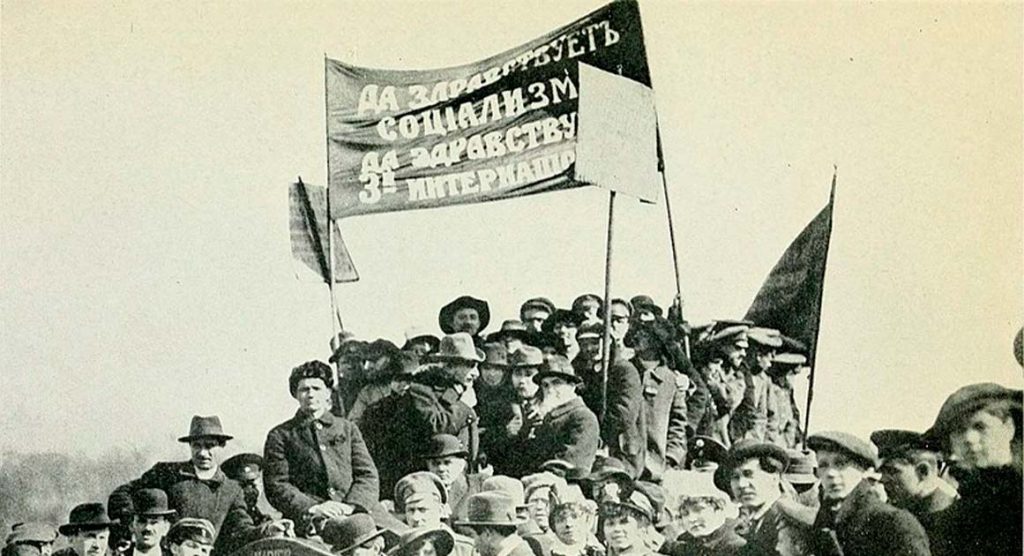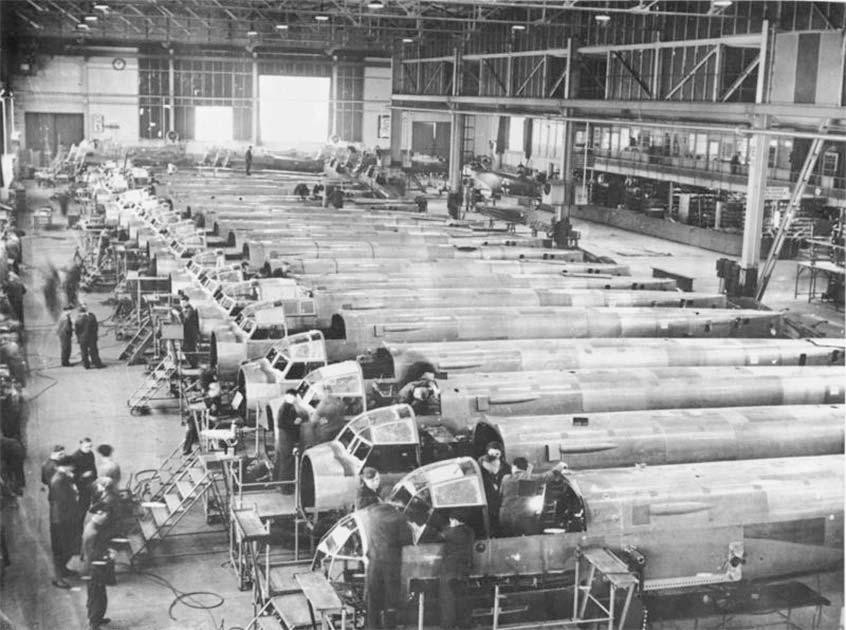The Treaty of Rapallo was a treaty signed on April 16th, 1922, between Germany and the Soviet Union. It was signed in Rapallo Italy, hence its name. It was negotiated by Walther Rathenau for Germany and for the Soviet Union, Georgy V. Chicherin.
The treaty’s purpose was to re-establish normal relations between the two nations after the First World War. They agreed to cancel all financial claims against each other and strengthen their military and economic ties.
However, Germany conducted this treaty as an independent nation which angered the Western Allies as there had been no treaties between any nations since World War I. But there was more to this treaty than even the Allies fully suspected.
What was going on with the Treaty of Rapallo, and how did Germany profit from it?
The Beginnings of the Treaty
Both Russia and Germany were very vulnerable after the conclusion of the First World War. Germany had been the big loser in the conflict and had become isolated within Europe. It had gone through disarmament and a number of its territories were taken from it and ceded to other European Nations. This included many of its colonies.
Russia on the other hand had left the war before the Allied victory because of the Bolshevik Revolution. Russia had also ceded many of its territories to Germany in the Treaty of Brest-Litvosk before the end of the war.
When the war ended, these territories formed new nations such as Poland. Russia also found itself isolated due to the collapse of its ruling dynasty and the new rule of communism.

The initial intention of Germany post-World War One seems to have been one of peace. It did however seek to change some of the aspects of the Treaty of Versailles which set the terms of itys surrender, in order to reclaim some portions of land, particularly those found in Western Poland.
These attempts, however, failed and Germany responded with a more aggressive approach, instituting an economic blockade on Poland in 1920. This attempt to force change also failed and cost many German businesses lots of money.
- Tsar Nicholas II: Could the Romanovs have saved Imperial Russia?
- What Were Hitler’s Plans for the Soviet Union?
Germany was forced to look for other alternatives. The head of the Germany Military, Hans Von Seeckt, believed that the best thing to do would be to create an alliance with Russia and then seek war on France. Fortunately, these ideas did not gain much traction, but the concept of moving closer to Russia did seem to stick among the German businessmen who saw growing market opportunities.
Russia had also hoped to make territorial gains at the expense of the newly formed Poland. However, it had no means by which to do this. The situation destabilized however when, in early 1919, a Polish-Soviet War broke out over border disputes.
Russia was initially successful but was soon pegged back by the Polish and peace was re-established by 1921. This unsurprisingly did not sate Russia’s thirst for expansion and pushed them further away from relationships with France and Britain.
With a common interest in Poland and an increasing feeling of isolation, it is no surprise that Germany and Russia developed a natural sympathy for each other. Russia really required skilled workers in the industry that Germany had while Germany needed somewhere to sell their products and source raw materials. It seemed like a productive match.
Negotiations
Both the British and French prime ministers quickly became worried that the terms of the Treaty of Versailles had been too harsh on Germany. The desire to “make Germany pay” for the First World War stunted their economic recovery, which could harm all of Europe.
This is why they sought out another treaty in Genoa in 1922. All the big nations were invited to attend this “Economic and Financial Conference” including Germany and Russia. The US was also invited but chose not to attend.
The British Prime Minister David Lloyd George felt confident in his position and thus brought no senior foreign office members. However, he was not prepared for the change in French Government which saw Raymond Poincare take over.
Poincare was incredibly aggressive towards Germany, and felt that Versailles had in fact not gone far enough. The French Prime Minister overruled Lloyd George and hoped to implement a plan that would harm Germany’s economic recovery significantly.
There were other problems, too. In pre-1917 Europe, many Western Nations had made heavy investments and loans in Tsarist Russia. The new communist regime refused to honor these leading to an isolated Russia. Poincare hoped to land Germany with Russia’s old debts and to extort the German nation.
- The Prisoner Pope of the Vatican and the Makings of Modern Italy
- Italy’s Quest for the Ark of the Covenant in Ethiopia
However, Russia and Germany had already despaired of a pan-European solution. They had instead entered into a secret military pact and had grown close in their isolation. On top of this, France was hoping to impose strict trading legislation on Russia.
Whilst the western nations were meeting in Genoa, Russia, and Germany organized a secret delegation to meet in Rapallo which was nearby. They quietly and quickly signed a treaty that canceled all debts owed to each other and aided each other’s economic goals.
The Rapallo Treaty also provided diplomatic cover for cooperation in military matters which allowed Germany to rapidly rebuild its military strength in Russia. It built a flying school at Lipetsk, a chemical weapons factory at Volsk, and two factories for tanks in Moscow and Rostov-on-Don.

In return, German banks offered credit to Russia so that it could buy military and industrial machines. Russia could also export its vast quantities of grain. Due to its secrecy, the treaty signed at Rapallo caught all of the nations in Genoa off guard. That conference collapsed with the British and the French condemning the secret treaty of Rapallo.
This rearmament of Germany also emboldened the nationalists who felt that Germany had been betrayed in surrendering to the Allies in 1918. Such figures included a young Adolf Hitler, himself a veteran of the First World War. Germany’s growing military strength gave him the confidence to air his views publicly, although it would be a decade before they saw him come to power.
The Legacy of Rapallo
Over the next hundred years, the term Rapallo has been used to showcase different lessons for various nations. In Britain and France, and in some of the smaller nations of Europe, the term has become a symbol of the sinister intentions of Germany and the Soviet Empire to control Europe.
A conclusion that would be proved entirely correct over the years succeeding the Rapallo Treaty with World War II. In Germany, unsurprisingly, there is a much more hopeful connotation attached to the Rapallo treaty.
It represented a hopeful and aspiring independent foreign policy of playing Western and Eastern Europe against each other. Whereas in Russia and the Soviet Empire, the term Rapallo marked the first great diplomatic triumph of the new regime. It showed how a weaker nation may be able to use pacifism to outmaneuver the bourgeois enemies that surrounded them.
Top Image: With the Treaty of Rapallo, signed in 1920, Germany found in Russia a new ally who would help rebuild her armies. Source: Bundesarchiv, Bild 183-R14433 / CC-BY-SA 3.0 DE.
By Kurt Readman